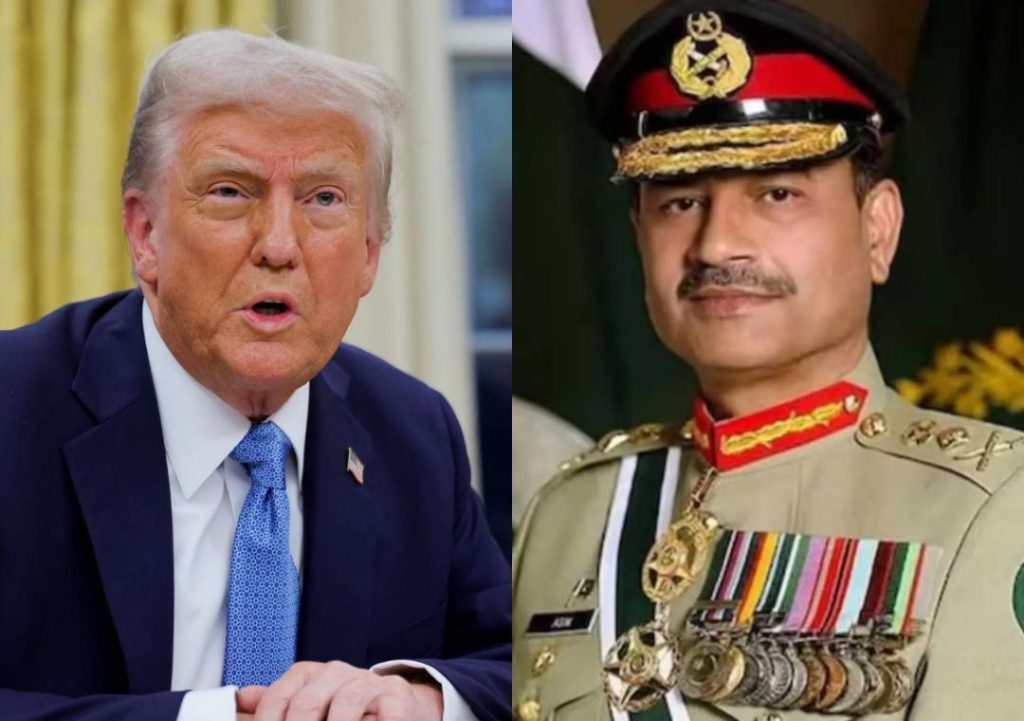
Pak Crypto Deal with Links to Trump, Asim Munir Under Scrutiny in India & US: Report
A recent deal between Pakistan’s newly formed Crypto Council and a US-based crypto firm, World Liberty Financial (WLF), has raised eyebrows in both India and the United States. The controversy surrounds the close ties between WLF and the Trump family, with 60% of the company owned by US President Donald Trump’s sons, Eric and Trump Junior, as well as his son-in-law, Jared Kushner. Furthermore, Pakistan Army Chief Asim Munir personally welcomed US officials who came to sign the deal, sparking concerns about potential conflicts of interest and the implications of such a high-profile partnership.
According to reports, the Crypto Council, established in Pakistan just a month ago, signed a Memorandum of Understanding (MoU) with WLF to promote the development of the crypto industry in Pakistan. While the details of the agreement have not been publicly disclosed, critics are questioning the motivations behind the deal and the potential consequences for the Pakistani economy.
WLF, a relatively new player in the crypto market, has been criticized for its lack of transparency and regulatory compliance. The company’s website claims to offer a range of financial services, including crypto trading and investment opportunities, but experts have raised concerns about the firm’s ability to comply with international anti-money laundering and know-your-customer regulations.
The involvement of the Trump family in WLF adds a layer of complexity to the deal. Eric and Trump Junior, who are both executives at the company, have been involved in various business ventures in the past, including real estate and entertainment. Jared Kushner, who is married to President Trump’s daughter Ivanka, has also been involved in several business deals, although his involvement with WLF is unclear.
The presence of Pakistan Army Chief Asim Munir at the signing ceremony has also raised eyebrows. While it is not uncommon for military leaders to be involved in economic development initiatives, critics argue that Munir’s involvement in the deal raises questions about potential conflicts of interest and the potential for undue influence.
Pakistan has been working to develop its crypto industry in recent years, with the government announcing plans to launch its own cryptocurrency, the Pakistan Rupee (PR). However, the country’s crypto landscape is still relatively underdeveloped, with limited infrastructure and regulatory frameworks in place.
The deal with WLF has sparked concerns about the potential risks and implications of partnering with a company with close ties to the Trump family. Critics argue that the deal could compromise Pakistan’s sovereignty and potentially lead to the misuse of the country’s resources.
In India, the deal has raised concerns about the potential impact on the country’s own crypto industry. India has been grappling with its own crypto regulatory framework, with the government announcing plans to introduce a cryptocurrency bill in parliament. The deal with WLF has raised concerns about the potential for Pakistan to gain an unfair advantage in the global crypto market.
In the United States, the deal has raised concerns about the potential for WLF to use its ties to the Trump family to influence Pakistani policy. Critics argue that the deal could compromise the integrity of the US-Pakistan relationship and potentially lead to the misuse of US aid and resources.
As the controversy surrounding the deal continues to unfold, it remains to be seen how Pakistan will respond to the concerns raised about the deal. The Pakistani government has been tight-lipped about the agreement, and it is unclear whether the country will take steps to address the concerns raised about the deal.
In conclusion, the deal between the Pakistan Crypto Council and WLF has raised significant concerns about the potential risks and implications of partnering with a company with close ties to the Trump family. The involvement of Pakistan Army Chief Asim Munir and the lack of transparency surrounding the deal have added to the controversy, sparking concerns about potential conflicts of interest and the potential consequences for the Pakistani economy.
Sources:






